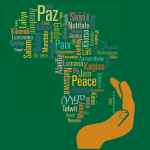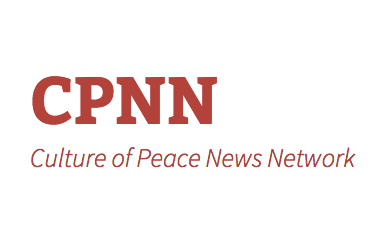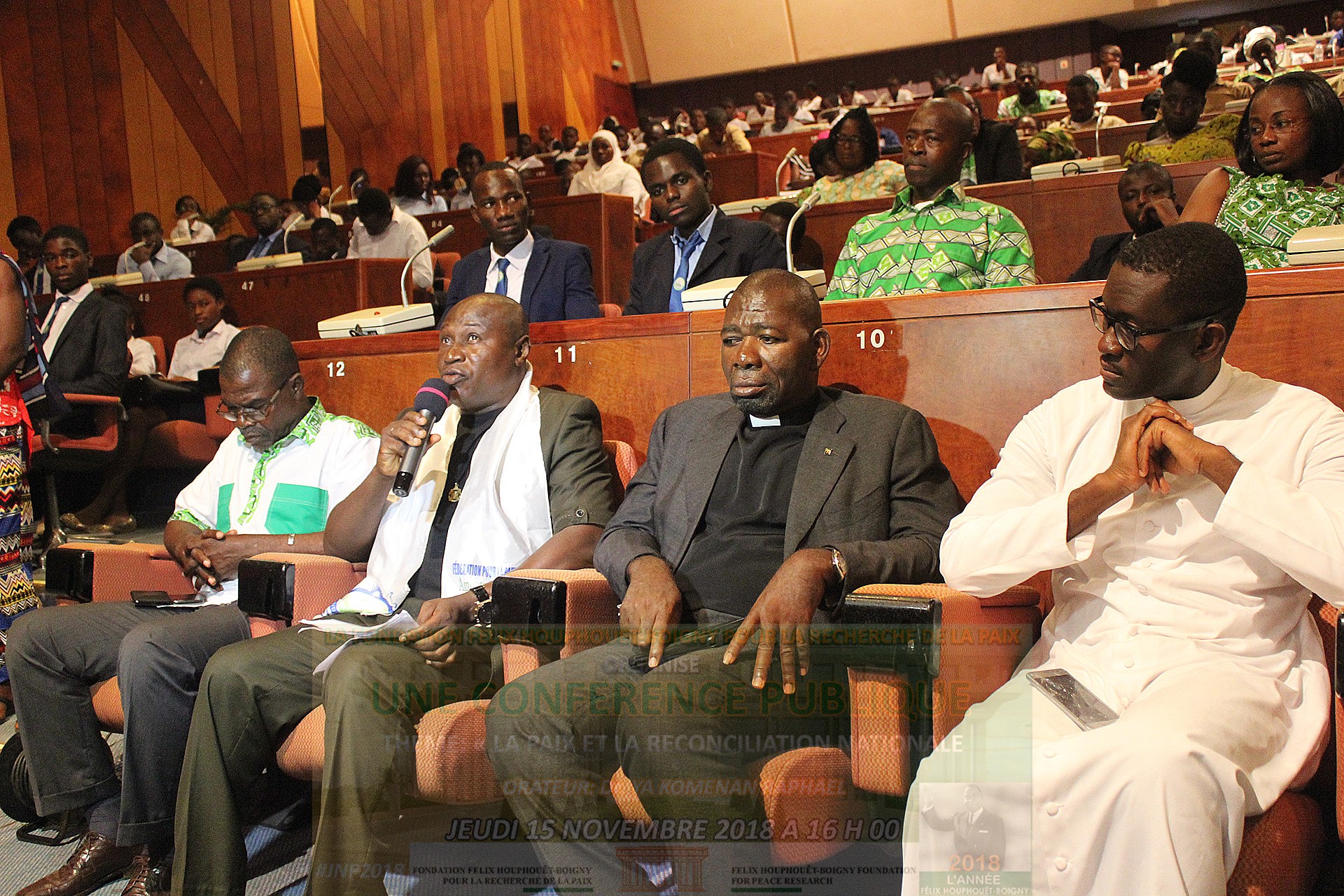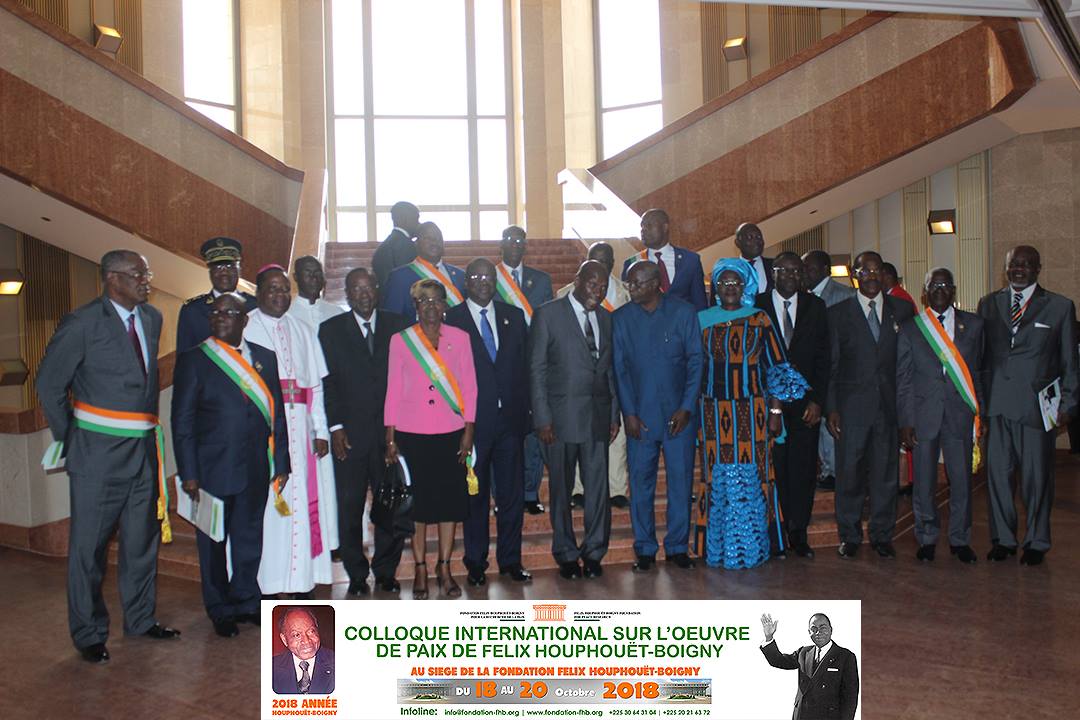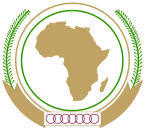-
Welcome to the
Network of Foundations and Research Institutions for the Promotion of a Culture of Peace in Africa
-
The Network's Meetings
News
CPNN (Culture of Peace News Network) bulletin of March 1, 2022
Peace Activists Against War in Ukraine
(Editor’s note: This was originally published on February 21 prior to the invasion.)
The commercial mass media, more than ever an arm of the culture of war, has trumpeted claims that the Ukraine is about to be invaded by Russia in open warfare and that the US and NATO are moving forces into the surrounding countries.
What you don’t find in the commercial mass media is any mention of the antiwar declarations by peace activists in all of the countries concerned.
By careful searching we have been able to find these declarations. Here they are.
Ukraine: The Ukrainian Pacifist Movement has published a declaration on their facebook page, demanding:
- compliance with the Minsk peace agreement of 2015,
- withdrawal of all troops,
- suspension of all supplies of weapons and military equipment,
- suspension of total mobilization of the population for war, propaganda of war and hostility of civilizations in the media and social media.
and going beyond the Ukraine they demand:
- global deescalation and disarmament,
- the dissolution of military alliances,
- the elimination of armies and borders dividing people.
Russia: An open letter, signed by many Russian artists, politicians and academics, and even a retired colonel of the armed forces, criticizes what they call “the party of war in the Russian leadership.” “Only one point of view. is presented on state television, and that is the point of view of the supporters of the war. We hear about military threats and aggression concerning Ukraine by America and Western countries. But the most dangerous thing is that war is being presented as an acceptable and inevitable course of events. People are trying to deceive, corrupt, impose on us the idea of a holy war with the West instead of developing our country and raising our standard of living. The question is not discussed, but it is ordinary people who will have to pay this price – a huge and bloody price.”
Ironically, the Google document with the full list of signatures is blocked by Google, with the statement that “You can’t access this item because it is in violation of our Terms of Service.”
(Editor’s note: More recently, as of February 26, protests have intensified including thousands of Russian artists and scientists who have signed open letters against the war.)
United States: The United National AntiWar Coalition (UNAC), which brings together most of the leading antiwar organizations of the United States, has issued a statement recalling that the United States promised Soviet leaders at the end of the Cold War that NATO would not expand east of Germany, and criticizing the West for breaking this promise and threatening Russia. UNAC demands:
- No US weapons or military advisors for the Ukrainian military;
- Stop the US saber rattling;
- No war with Russia;
- Keep Ukraine out of NATO.
France: An extensive list of French peace organizations and trade unions have signed a statement condemning the “geopolitical games at work both on the part of the Russian Federation, the European Union, NATO and others” and demanding:
- Immediate negotiations for de-escalation;
- Stopping threats, NATO and Russian troop concentrations and arms deliveries to all parties;
- A ceasefire in Ukraine and the implementation of existing agreements;
- That the United Nations be the privileged framework for developing political and diplomatic solutions to settle the Ukrainian question.
United Kingdom: Stop the War Coalition has issued a statement opposing war in the Ukraine and criticizing the role the the Britsh government has played by talking up the threat of war continually, advancing no proposals for a diplomatic solution and sending arms to Ukraine and deploying further troops to Eastern Europe. Among other demands, the Coalition call for “a halt to the eastward expansion of NATO” and “a new security deal for Europe which meets the needs of all states and peoples.”
Germany: A petition signed by over 200 German politicians and peace activists states that “A one-sided blaming of Russia, as practiced by some Western governments and in the major media, is unjustified and is increasingly taking on the character of war propaganda.” The petition demands:
- Concrete steps to de-escalate, no military supplies to Kiev;
- No more war rhetoric, confrontational politics and sanctions against Russia;
- Active advocacy for the implementation of the Minsk II agreement, which is binding under international law ;
- Negotiations with Russia based on a clear commitment to detente and the principle of common security;
- Active advocacy for arms control and disarmament negotiations.
In addition to these declarations by peace activists, the European Leadership Network has published an updated set of seven far-reaching recommendations for reducing the military tensions between Russia, the US and NATO that is signed by 26 leading Russian academicians and 49 leading academicians from the West. In addition to academicians among the signatories from the United States are former ambassadors to Russia, Ukraine and NATO, a former Secretary of Defense, and several retired admirals and generals. On the Russian side there are also very high-placed signatories in addition to academicians, including the former head of the Russian Strategic Rocket Forces, a former Minister of Foreign Affairs, a former ambassador to the United States, a former Chief Military Representive to NATO and a retired general of the armed forces.
Will the political leaders of Russia, Ukraine, United States and NATO listen to these voices, even though they are not found in the commercial mass media. We can only hope so.
| DISARMAMENT & SECURITY
France : War is never the solution. Yes to a negotiated political solution. |
TOLERANCE & SOLIDARITY
The Pope : “The time has come to live in a spirit of fraternity and build a culture of peace” |
WOMEN’S EQUALITY
United Nations : Commission on the Status of Women 2022 |
FREE FLOW OF INFORMATION
The Expert Dialogue on NATO-Russia Risk Reduction: Seven recommendations |
| SUSTAINABLE DEVELOPMENT
Central Africa : Safeguarding the Lake Chad basin, a major regional challenge |
DEMOCRATIC PARTICIPATION
UN chief calls for Olympic Truce to build ‘culture of peace’ through sport |
HUMAN RIGHTS
Amnesty International : Israel’s Apartheid Against Palestinians |
EDUCATION FOR PEACE
Mexico : Renowned researchers share their experience of the UNESCO Chairs of the Latin American and Caribbean Region |
CPNN (Culture of Peace News Network) bulletin of February 1, 2022
MEDIATION AND RESTORATIVE JUSTICE
While it is difficult to find progress in the culture of peace in international relations, the methods of the culture of peace such as mediation and restorative justice continue to advance at the level of inter-personal relations.
The greatest advances continue to be seen in Latiin America.
CPNN (Culture of Peace News Network) bulletin of January 1, 2022
For almost a decade now, CPNN has been following the Biennale of Luanda as it strives to make Africa the first continent to adopt everywhere a culture of peace.
The process began in 2013 with the Pan-African Forum “Sources and Resources for a Culture of Peace ” held in Luanda, Angola. It was extended in by the 2nd international conference on the culture of peace in Africa , December 2016 in Luanda.
The process was formalized to occur every two years as the Biennale of Luanda, and the first Biennale was held in September 2019.
Last month, the process culminated in the Second Biennale of Luanda held from November 27 to December 2 as a hybrid programme of in-person and on-line events.
The representative of UNESCO who led this process from the beginning, Enzo Fazzino, was honored in a videoconference, as he retired after this year’s event. The account on the UNESCO website is entitled, Une étoile s’ajoute parmi les grands sages de l’UNESCO (A star is added to list of the great wise men of UNESCO).
This year’s Biennale gathered high-level participants from governments, international institutions, the private sector, the artistic and scientific communities, and many more. It was organized as an intergenerational dialogue involving young people from all the countries of the African Union, as well the diaspora.
In the end, 118 young people were selected from 49 African countries and 14 countries of the Diaspora to take part in the Biennale, of whom 10 came in person to Luanda and the others participated virtually. The youth made a number of commitments, including to “Strengthen the capacity of Pan-African youth to promote the culture of peace, identify and support youth initiatives and best practices that work towards the sustainable implementation, individually and collectively, of the concepts of the culture of peace.”
The event included a rich selection of films and shows for culture of peace in Africa. Links to videos of 20 are provided on CPNN, coming from Cape Verde, Congo, Ghana, Morocco, Namibia, Rwanda, Senegal and Zimbabwe, as well as the Diaspora in Argentina, Brazil, Cuba, Germany, Haiti, Portugal and Sweden.
The Biennale was opened by the President of Angola, João Lourenço, He recognized the involvement of the African Diaspora, “Many of Africa’s children have been leaving the continent in inhumane conditions and at the risk of their own lives in fleeing conflict zones or looking for a job and better living conditions. Regardless of their age, academic or professional background, they are all important and needed for the development of our continent. We always have the expectation that one day they will voluntarily return with the desire to contribute towards leveraging progress and development in all sectors of African national life.
Speaking as the President of the African Union, Félix Tshisekedi, assured their continued support and paid tribute to the role of youth, ““Excellencies, Ladies and Gentlemen, in the words of the illustrious Agostinho Neto Kilamba, President and Poet, champion of the liberation of man and human brotherhood, ‘poet of sacred hopes’, we should ‘look at Africa with the eyes of the future’,”
And in her speech, UNESCO Directrice-General Audrey Azoulay said “UNESCO will continue to give its full support to this pan-African initiative, so that it is sustainable, in cooperation with the African Union and the Government of Angola. The culture of peace and non-violence is a long relay race ; it takes s a united team, generation after generation, to be victorious.”
The Biennale will be re-convened in two years, again organized by the African Union, Angola and UNESCO. In the meantime, it is up to the youth to keep the flame going.
| FREE FLOW OF INFORMATION
Highlights of the Biennale of Luanda 2021 : Pan-African Forum for the Culture of Peace |
TOLERANCE & SOLIDARITY
Youth at the Luanda Biennale – Pan-African Forum for the Culture of Peace |
WOMEN’S EQUALITY
Phyllis Kotite has passed away |
DEMOCRATIC PARTICIPATION
Mercociudades: A Latin American Network to Fight for More Inclusive, Egalitarian, Diverse and Supportive Cities
|
| SUSTAINABLE DEVELOPMENT
Indian farmers call off lengthy protest after govt assurances |
DISARMAMENT & SECURITY
Bangladesh: Dhaka Peace Declaration Adopted |
HUMAN RIGHTS
The Elders: Israel’s designation of Palestinian NGOs as “terrorist” undermines core democratic principles |
EDUCATION FOR PEACE
Mexico: Toys and Games as Instruments of the Culture of Peace |
CPNN (Culture of Peace News Network) bulletin of December 1, 2021
The Failure of COP26
Once again, this time the 26th, the Conference of Parties has failed – the conference of the nation-states of the world to deal with the climate crisis.
As described by Greta Thunberg, it was a “greenwashing event” of “blah, blah, blah”: “The leaders are not doing nothing; they are actively creating loopholes and shaping frameworks to benefit themselves, and to continue profiting from this destructive system. This is an active choice by the leaders to continue the exploitation of nature and people and the destruction of presents and future living conditions to take place.”
The Network Meetings
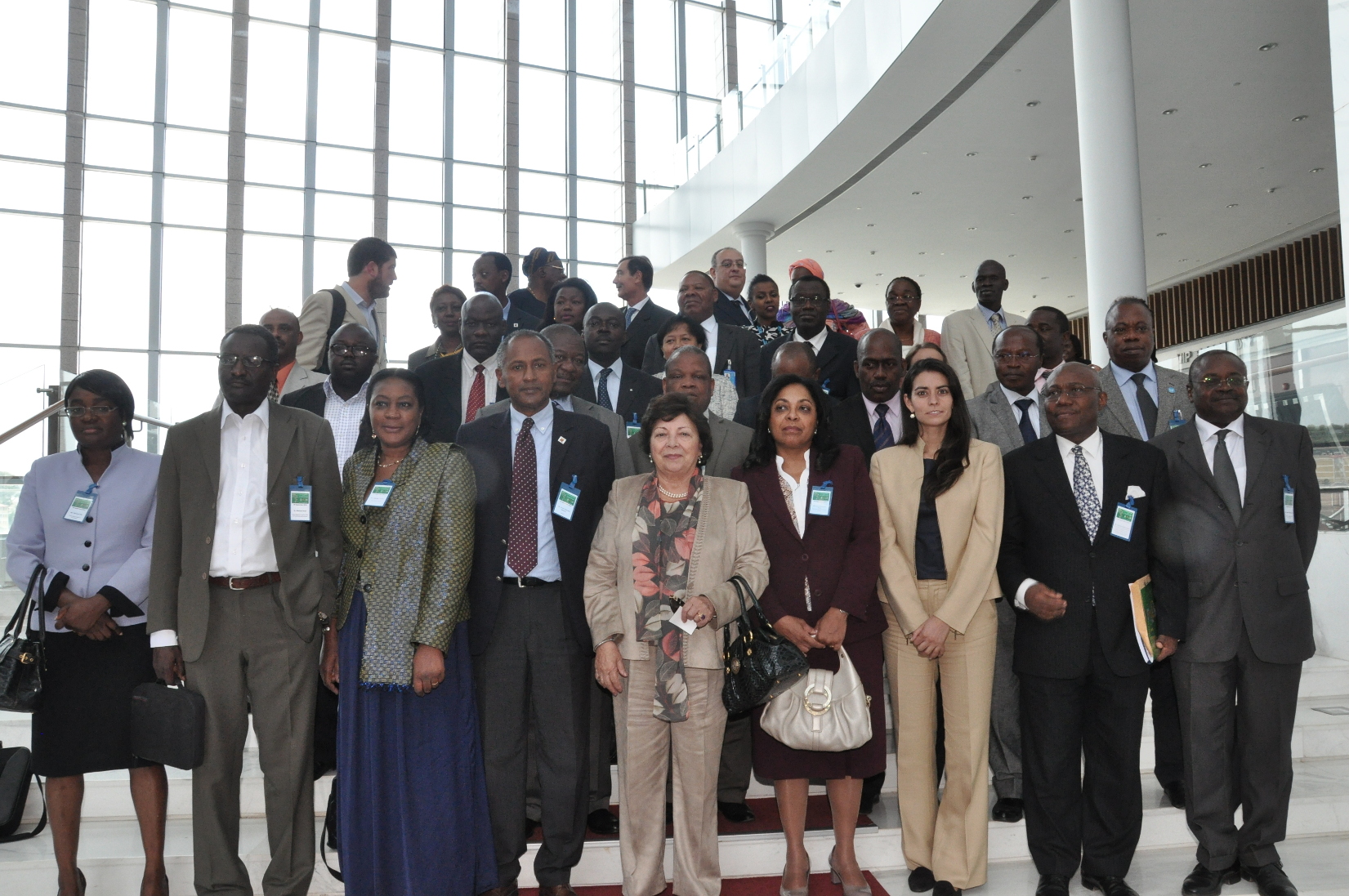
Links
FESA-UNESCO International Conference, December 12-13, 2016, Luena, Angola
Third Meeting of the Network September 11-12, 2015 in Soyo, Angola
Second Meeting of the Network, from September 21 to 24, 2014 in Yamoussoukro, Côte d'Ivoire
Network Creation Meeting on September 20, 2013 in Addis Ababa, Ethiopia
Text Resources
- Call for Papers HARIS 2 JUNE 2021
- Report of the 5th Meeting of Members of the Network held on 21 September 2019 in Angola on the sidelines of the Luanda 2019 Biennale for the Culture of Peace
- Activity Report 2019
- Program of the Luanda Biennale
- DRC the six-day war in Kisangani
- Insecurity in the Masisi in Eastern DR Congo
- General Report of the Houphouet Boigny Foundation International Conference, October 20, 2018
- RAPPORT FINAL DE LA CONFERENCE FESA-UNESCO SUR LE THEME "PREVENTION DES VIOLENCES ET PROMOTION DE LA CULTURE DE LA PAIX EN PERIODE ELECTORALE EN AFRIQUE" LES 12 ET 13 DECEMBRE 2016 A LUENA EN ANGOLA
- BULLETIN DE L’UNION AFRICAINE (UA) ET DE LA CORNE DE L’AFRIQUE (HOA) du 1er juin au 31 Août 2017
- LES STATUTS DU RÉSEAU
- RAPPORT D'ACTIVITÉS 2014 - 2015 DU RÉSEAU
- RAPPORT D'ACTIVITÉS 2015 - 2016 DU RÉSEAU
Welcoming Remarks
You are welcome to visit the website of the Network of Foundations and Research Institutions for the Promotion of a Culture of Peace in Africa.
The Network was created at the end of the Addis Ababa meeting on September 20 and 21, 2013 with a view to "creating a continental and sustainable peace movement capable of mobilizing African States, the private sector, African artists and leaders, international organizations and regional development actors as well as NGOs and grassroots associations". It is currently composed of 44 African and non-African organizations listed here.
You will find on our website articles, publications, photos and videos concerning the promotion of the Culture of Peace on the African continent. We also keep you informed about upcoming events.
